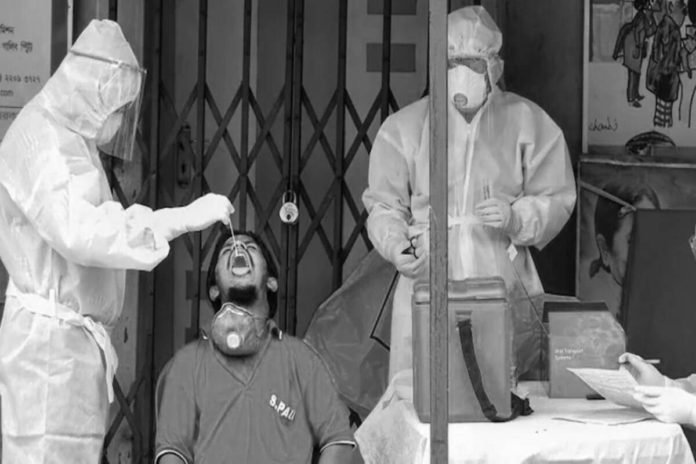India reported 6,563 new Covid cases and 132 deaths in the last 24 hours, said the Union Ministry of Health and Family Welfare on Monday.
With the addition of 132 new deaths, the death toll has climbed to 4,77,554.
The recovery of 8,077 patients in the last 24 hours has increased the cumulative tally to 3,41,87,017. Consequently, India’s recovery rate stands at 98.39 percent, the highest since March 2020.
India’s active caseload is presently at 82,267, the lowest in 572 days. Active cases constitute 0.24 percent of the country’s total positive cases, which is the lowest since March 2020.
Also in the same period, a total of 8,77,055 tests were conducted across the country. India has so far conducted over 66.51 crore cumulative tests.
Meanwhile, the weekly positivity rate at 0.60 percent has remained less than 1 percent for the last 36 days now.
The daily positivity rate stands at 0.75 percent, which has also remained below 2 percent for the last 77 days and less than 3 percent for 112 consecutive days now.
With the administration of 15,82,079 vaccine doses in the last 24 hours, India’s Covid inoculation coverage has reached 137.67 crores as of Monday morning.
This has been achieved through 1,44,91,123 sessions.
More than 17.99 crore balance and unutilized Covid vaccine doses are still available with the states and union territories to be administered, according to the health ministry as of Monday morning.
India has continued to witness a spike in the Omicron variant of coronavirus with the overall caseload surging to 164. A total of 11 states and union territories have registered more than 160 cases of Omicron in the past 18 days.
Karnataka was the first state in the country to detect the Omicron variant on December 2. Since then, several states and national capital Delhi have continued to see a gradual rise in the Omicron case tally. As per the Central government’s data, Maharashtra has registered the highest Omicron cases at 54, followed by Delhi (24), Rajasthan (17) and Karnataka (19), Telangana (20), Gujarat (11), Kerala (15), Andhra Pradesh (1), Chandigarh (1), Tamil Nadu (1) and West Bengal (1).
More about Omicron
The Omicron variant has been called a variant of concern by WHO based on studies that shows it has several mutations.
Still a lot of research is underway to evaluate its transmissibility, severity and reinfection risk.
The Omicron variant has been detected in several regions of the world. WHO reports that the likelihood of the Omicron variant spreading further globally is high.
It is not currently known if the Omicron variant is more or less severe than other strains of COVID-19, including Delta. Studies are ongoing and this information will be updated as it becomes available.
It is not yet clear whether Omicron can spread more easily from person to person compared to other variants, such as Delta.
However, being vaccinated and taking precautions such as avoiding crowded spaces, keeping your distance from others and wearing a mask are critical in helping to prevent the spread of COVID-19, and we know these actions have been effective against other variants.
Researchers are looking into any potential impact the Omicron variant has on the effectiveness of COVID-19 vaccines. Although information is still limited, WHO believes it is a reasonable assumption that the currently available vaccines offer some protection against severe disease and death.
It is also important to be vaccinated to protect against the other widely circulating variants, such as the Delta one. When it’s your turn, make sure to get vaccinated. If your vaccination involves two doses, it’s important to receive both in order to have the maximum protection.
According to WHO, early evidence suggests that people who have previously had COVID-19 could be reinfected more easily with Omicron, in comparison to other variants of concern. Information is still limited though and we will share updates as it becomes available.
Source: UNICEFRead more Health News
Latest update Omicron

